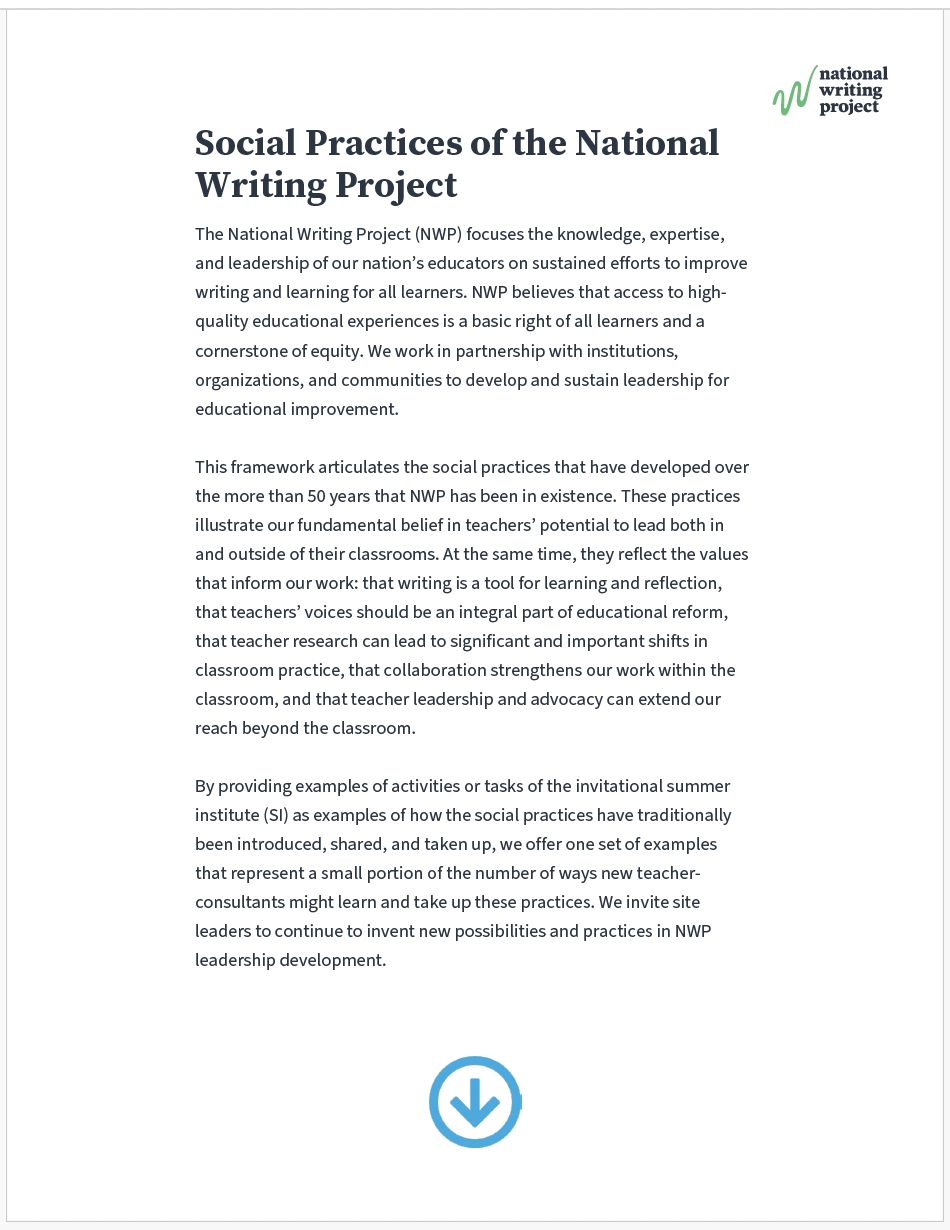Summary:
For National Writing Project teachers, collaboration is central to building both individual and collective capacity.To engage the other social practices of Writing Project work—writing, learning, advocating, going public, and leading—we must learn to effectively collaborate in some form or another with readers, other writers, students, families and communities, legislators and policy-makers, curriculum and assessment developers, and, of course, with other teachers in our local, professional, and disciplinary communities. In fact, our belief in teachers as collaborators, as opposed to teachers as individual rock stars, sets us apart from many professional development organizations. We value the ways that Writing Project teachers not only develop themselves professionally, but also build collaboratives that raise the status of others and raise the status of the profession itself.
While collaboration is at the heart of our work, we know that collaboration is not always easy. Not only are we called, by virtue of our profession, to collaborate with others whose backgrounds, experiences, values, and interests might be radically different from our own, we often work with others who hold different understandings of writing, teaching, and the teaching of writing. In addition, we have to be attentive to the dynamics of power and privilege that operate in our collaborations in subtle but powerful ways. To effect productive, dynamic, and mutually beneficial collaborations with a variety stakeholders, we need good tools and models for what successful teacher collaboration can look like and what it can produce.
Local Writing Project site directors are faced with the challenge of building different kinds of collaborations in their local contexts. This collection is a curated set of experiences and resources that you can use to develop collaborative programming at your site. The experiences suggested in this Pathway are types of programming you might build and facilitate, and the resources are culled from NWP’s Write Learn Lead knowledge base to support that programming. These resources include practical guidance, tools and protocols to use or modify, as well as stories of how local sites have approached, designed, and reflected on their collaborative work.


